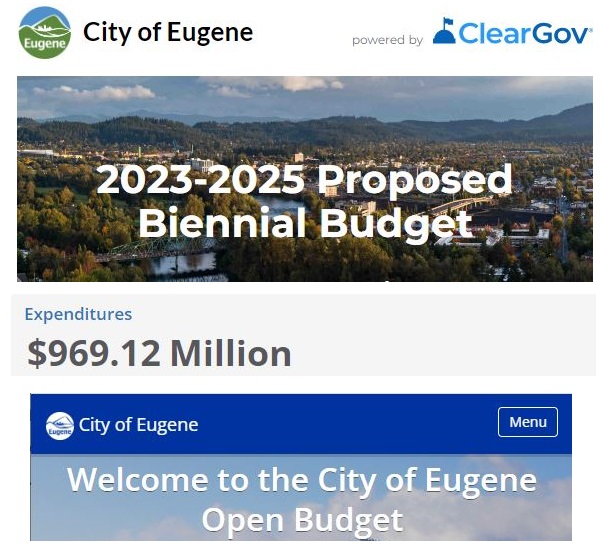City can’t tell you where all the money goes
3 min read
by John Quetzalcoatl Murray
The city of Eugene can’t tell you exactly where nearly $1 billion in taxpayer money is going.
Staff say their financial system software does not currently report outgoing payments by recipient.
“Vendor payments are in a module of the financial software that would require aggregating the data and building a report,” staff responded in an Aug. 14 email. “Because this is not a readily available report, it would take considerable staff time to aggregate data and format a report.”
Budget committee and city council members confirmed that staff does not provide a comprehensive view of the city’s outgoing payments.
The question came up while fact-checking a July 24, 2023 city council discussion about the city’s contract with the Springfield Eugene Tenant Association.
Information about payments to SETA and others are not available through the city’s budget websites. The city said at this time it is only able to provide the information about individual vendors in response to public records requests.
Multiple public records requests would quickly consume staff time, and prove prohibitively expensive for requestors. Can the budget website share a report or spreadsheet which lists all individual payments for a given time period?
Detailed payment data could show how much of the city’s money stays in Eugene, how much stays in the state, and where the rest of it goes.
Payment data could rank recipients by total payments and show spending trends over time. By combining city payments with information about company ownership, taxpayers could also track progress towards equity goals.
Pressed on whether its software could reduce staff costs by providing this list, Open Budget vendor Tyler Technologies deferred all questions about the system’s enabled features to the city of Eugene.
“We support our clients as they make the decisions that are best for them regarding access to their data,” a company spokesperson said in response to a media query. “Your best source of information regarding what information is available and how it can be obtained is someone with the city.”
The city added a second budget website as of Aug. 1, 2023. The new vendor, ClearGov.com, was also asked whether its software can share payment details.
Either way, the city cannot share comprehensive payment data at this time, staff said in an email.
“The only functionality we purchased in the open budget software was an online dashboard – it was not used for reporting and I don’t know if reporting functionality is available,” Assistant Finance Director Vicki Silvers wrote. “We use different products for our financials and budget data that we upload to the open budget software. Additionally our financial data reports at a higher level – not at the vendor level. Vendor payments are in a module of the financial software that would require aggregating the data and building a report if you are looking for that specific information.”
Senior Budget Analyst Liz Butterfield also confirmed that the budget committee does not receive reports or spreadsheets showing all city payments by recipient. “The Budget Committee has not requested nor received a spreadsheet” such as the one suggested, she wrote.
City Council President Randy Groves pointed out that Eugene city councilors are elected volunteers who serve the community much like a board of directors, providing policy direction.
He said they rely on the Annual Comprehensive Financial Report which provides an accounting of revenues and expenditures, “with an outside independent audit performed by a private accounting firm as a further measure of checks and balances that are in place to manage the public’s money.”
Budget Committee Chair Tai Pruce-Zimmerman said payment details would not be particularly helpful for that committee’s specific tasks, but added, “It could definitely be interesting data.”
The bottom line: Although its biennial budget will soon top $1 billion, the city of Eugene is not able to share a report of detailed payments showing where all that taxpayer money actually goes.






